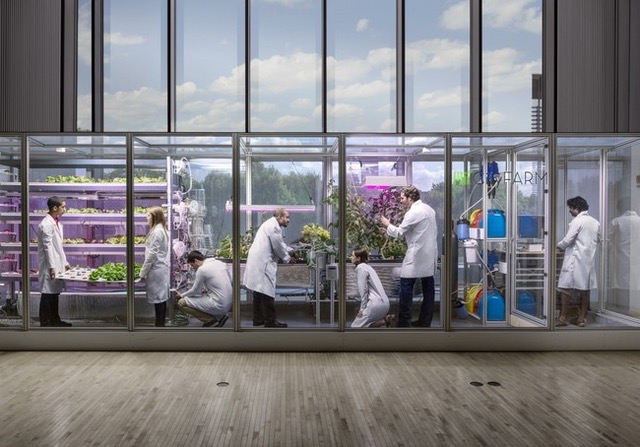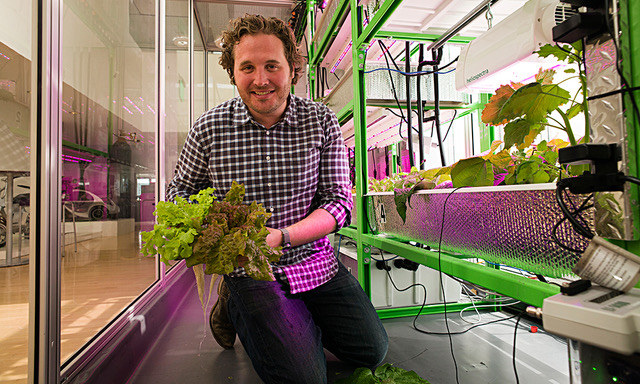 An apple a day keeps the doctor away. Not these old geezers. How the quest to create a billion farmers will disrupt and revolutionise how we think about and grow our food.
An apple a day keeps the doctor away. Not these old geezers. How the quest to create a billion farmers will disrupt and revolutionise how we think about and grow our food.
Do you know how old the average apple is? From the time it is picked to you buying it from a supermarket. A week old? A few days? A month? 3 months? If you guessed 3 months you are getting warmer but are still pretty cold. 6 Months? Nope. 9 Months? Umm no. Here is the crazy truth. The average apple is 11-12 months old before you bite down into what is now essentially just a juicy ball of sugar with all the wonderful vitamins and goodness long gone.
Here’s the story of what is going down and one innovator’s quest to democratise farming:
Once apples are picked on a farm they are stored in massive warehouses. These warehouses are pumped full of gas which is toxic to humans. There is even documented evidence of people entering these warehouses and dying because they inhaled too much of the gas. The gas in question slows down the ripening process. At the end of their prolonged stay, the apples are covered in a microfilm of wax to give them the nice shinny sheen of a newly picked apple and then they are sold ironically as “fresh apple” that’s almost a year old. Frightening.
Very few people know this, it is one of the best kept agri-supermarket secrets, but one crazy quester with a big idea is planning to disrupt this and change how we think about farming and fresh food, his name is Caleb Harper and he is on a quest to create a billion new farmers using a box.
‘Inside this box” (which looks a lot like a 3D printer), says Caleb, you can create climate, any climate.” Perhaps the geek in me is getting ahead of myself but honestly, this climate in a box is a profoundly exciting innovation. Let me explain, if say, you know the perfect sweetest juiciest strawberries come from Mexico and then you know the exact climate components that created that perfect strawberry then with some modern-day robotics, algorithms and computer sensors you can recreate that same climate in a box, anywhere in the world.
Caleb explains: “We are creating climate. Then we are monitoring that climate with sensors. Those sensors are creating data, lots of data – CO2 data, humidity data, temperature data; about 30 data-points are monitored. We encapsulate that and we make a plant recipe, and we put that plant recipe on Wikipedia. Someone else can then pull that file down load it into their computer and within a tolerance grow a very similar strawberry. Essentially you could be growing the same strawberry in Mexico, Boston, Antarctica and the Sahara desert.”
Caleb Harper is a quester, the term we use at TomorrowToday to describe inspirational thought-leaders, disruptors, innovators, tinkerers and hackers who are on quests to make the world a better place. Questers achieve remarkable things by focusing on three leadership qualities.
Let’s demonstrate these qualities using Caleb Harper as an example:
- Questers have an inspirational ‘destination’. The goal of creating a billion new farmers certainly fits this criterion.
- Questers have a crazy big idea that challenges the impossible Essentially what Caleb and his team operating out of MIT Media Lab OpenAg, is trying to do is democratise farming. If each of us know the perfect plant climate recipe and we have food computers, servers or food data-centres (the different sizes of robotic farm computers he’s experimenting with) then we can grow any plant anywhere. This would make farmers out of individuals and neighbourhoods and bring farming truly into the digital world. This is that huge.
- Questers deliver meaningful benefits (to the world they touch and influence). The food production chain is a remarkably fragile ecosystem. Traditional farming is being increasingly stressed by volatile environmental conditions. On the consumer end, demand is skyrocketing with an ever growing and increasingly wealthier population. According to the World Bank, 50% extra food will be required to feed the nearly 10 billion people inhabiting our beautiful blue planet by 2050. Caleb’s computer farms would make farming accessible to people living in cities. His plans would reduce stresses on an already over-stretched agricultural system and provide a solution for natural resource scarcity, flattening yields, loss of biodiversity, changing climate, and booming urban populations.

Caleb Harper grew up close to food. His parents were farmers and he lived on a farm. But as any rebellious youth will testify, he did not want to become his father. Caleb decided to become a systems architect, but his link to farming proved too strong. During a trip to Japan, Fukushima following the devastating tsunami, he witnessed first hand the impact that extreme environmental events can have on agriculture and the food supply chain.’
“In the future,” Caleb says “we won’t have to ship food, we will simply shift data.” An open source ecosystem of food technologies to create healthier, more engaging and more inventive food systems, grown locally, from anywhere is a quest worth embarking on.


